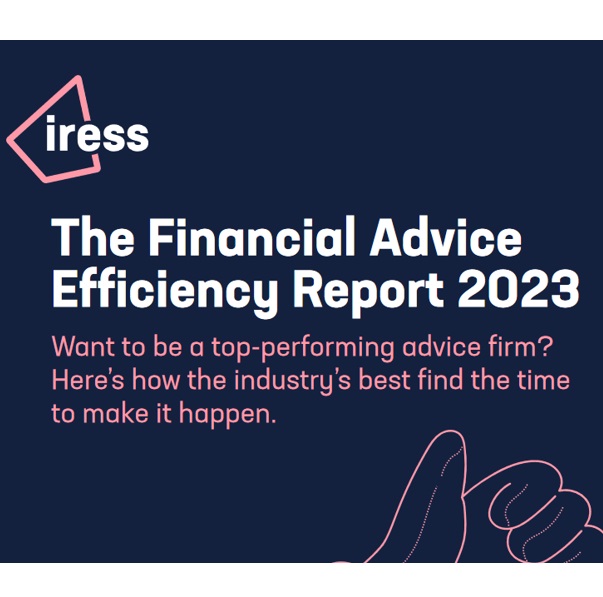
Advice practices increase profitability and efficiency – Iress survey
Australian financial advice practices have improved average total revenues and efficiencies since 2021, despite ongoing challenges around the ability to deal with scale and growing concerns about cyber risk and data security.
In Iress’ 2023 Financial Advice Efficiency Report, the average total revenues of all practices surveyed had increased from $1.1m in 2021 to $1.6m in 2023. This is despite practices shrinking their employee base and servicing fewer clients. In 2021, the average FTE per practice was 6.8, compared with 5.6 in 2023. The average clients per adviser also dropped marginally from 133 to 129.
Top performing practices bucked this trend by scaling up to handle a larger number of clients – managing more than 500 clients compared with an industry average of 457. High performing practices also generated profit margins of more than 60% compared with an industry average of just 27%.
Practice principals highlighted their concerns over growing cyber risks, with cyber and data security named as the number one technology challenge facing their business over the next 12 months, followed by the time taken to produce advice documents and the integration of applications into a single desktop.
Efficiency gains
Advice practices across the board were found to have made significant efficiency gains over the two-year period, reducing the time it takes to produce all types of advice documentation. Automation was behind the time savings, with practices running a fully automated review process on average three hours faster at preparing client review documents than peers relying on manual processes.
Hours taken 2021 | Hours taken 2023 | |
Strategy paper for new client | 5.6 | 4 |
Basic new client SOA | 8.1 | 6.7 |
Complex new client SOA | 14.6 | 12.2 |
Review documents for existing clients | 3.6 | 2.8 |
Xplan users were also found to be more efficient at complex tasks than those using other platforms, taking less time to complete complex SOAs and doing less repeat data entry.
Communication is king
The research also found that the most profitable Australian financial advice practices built their advice processes around a single platform and were shown to be far more efficient than those practices that used multiple software platforms for their business management processes.
The advice practices that communicated with their top clients more than 10 times per year were also able to achieve a 114% uplift in profitability. This supports research that shows direct correlations between client communication, satisfaction, referral business and overall practice profitability.
Advice industry on the improve
Iress’ CEO of Wealth Management, Harry Mitchell, said: “The survey results clearly show that the advice industry has been improving across a number of measures, despite prevailing pressures for advisers to do more with less and find ways to make good financial advice more accessible for more people.
“High performing advice practices are getting more out of their software by simplifying their tech stack and using a limited number of software applications to streamline their internal processes and reduce complexity. They’re also getting more referrals and stronger advocacy from their best clients, simply by staying in touch more often for less effort by using technology-underpinned communications solutions.
“Unsurprisingly, the research shows that cyber and data security is the number one challenge facing financial advice businesses in the coming 12 months. Even with a proliferation of cybersecurity products, services and guidance, the threat of a cyber attack or data breach continues, with businesses of every size subject to cybercrime in recent years.
“The good news is that there’s plenty of third-party specialists that advice practices can engage with if they haven’t already, to run vulnerability testing and set clear business continuity plans that can future-proof their practices.”
Iress’ 2023 Financial Advice Efficiency Report was produced in partnership with Business Health, an independent organisation specialising in customised advice and solutions to the financial services industry. The findings in the report are based on responses provided by 122 financial advice practices representative of the Australian advisory sector. A full copy of the survey results can be found here.


